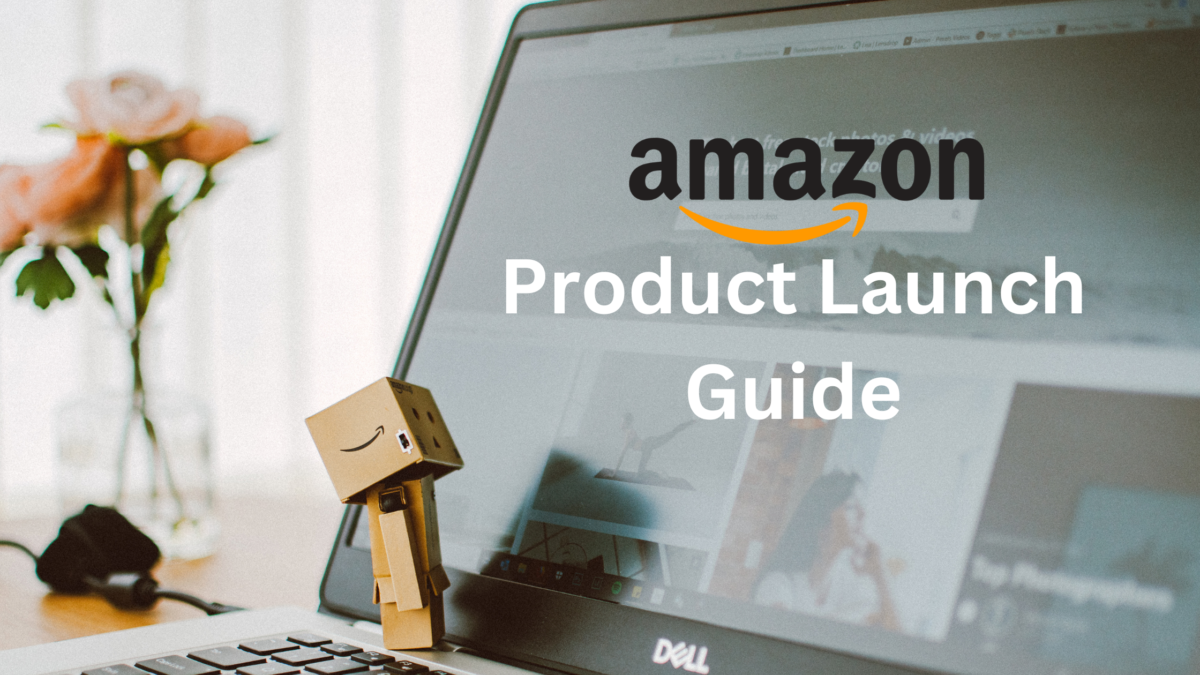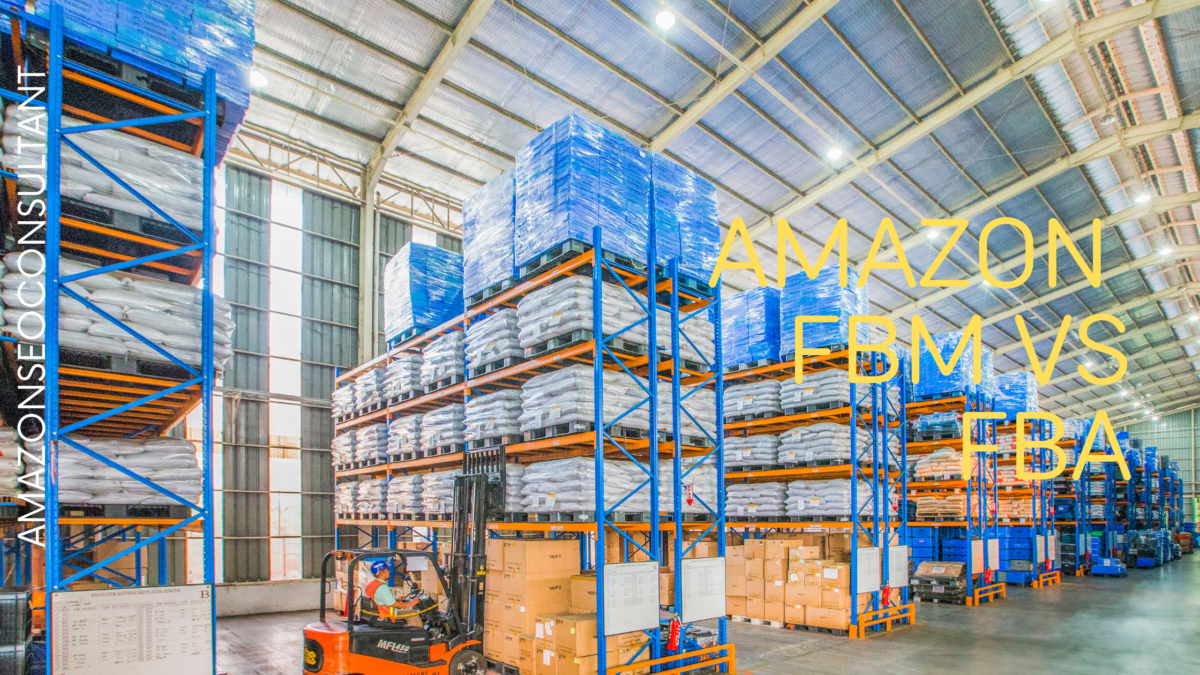Knowing how to add value to your Amazon business is a powerful thing.
After all, there are numerous reasons an Amazon seller may decide to exit the business.
In this post, we’ll break down some of the most reliable techniques to add value to your Amazon brand, allowing you to maximize your ability to benefit from an account sale.
But, before we go into the techniques, how do you judge what your Amazon business might be worth?
How Much Is My Amazon Business Worth?
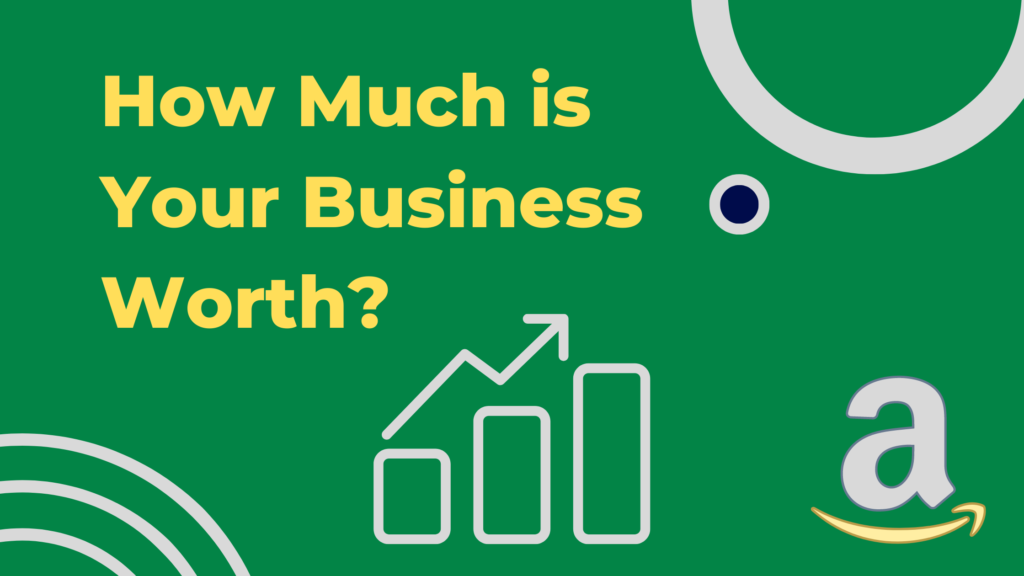
Determining the value of your Amazon business involves a comprehensive assessment of various factors.
Whether you’re looking to sell your business, secure funding, or simply gain insights into its overall health, understanding its worth is crucial.
Here’s some of the most important factors that will help you determine the value of your Amazon business:
Financial Records Analysis:

Review your financial statements, including income statements, balance sheets, and cash flow statements, for the last few years.
These records will provide valuable insights into your business’s revenue, expenses, profit margins, and cash flow trends.
A potential buyer or investor will scrutinize these records to gauge the business’s financial health.
Revenue Streams:
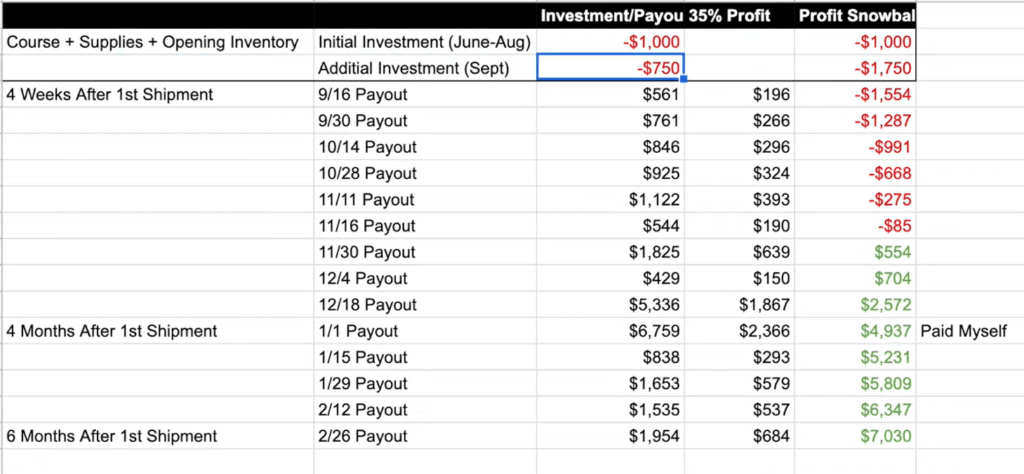
Identify the sources of revenue generated through your Amazon business. These might include sales from private label products, wholesale products, dropshipping, or Amazon FBA services.
Understanding the contribution of each revenue stream will help you evaluate the stability and potential of your business.
Profitability and Margins:

Assess the profitability of your Amazon business. Calculate gross profit margins and net profit margins to understand how much money you retain after accounting for all costs and expenses.
Higher profit margins generally indicate a more valuable business.
Customer Base and Reviews:
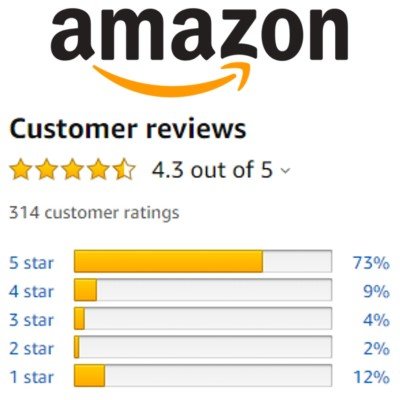
The number of loyal customers and positive reviews can greatly influence the value of your Amazon business.
A strong and engaged customer base is attractive to buyers and indicates the potential for recurring revenue, white also reaffirming the quality of your products.
Market Analysis:
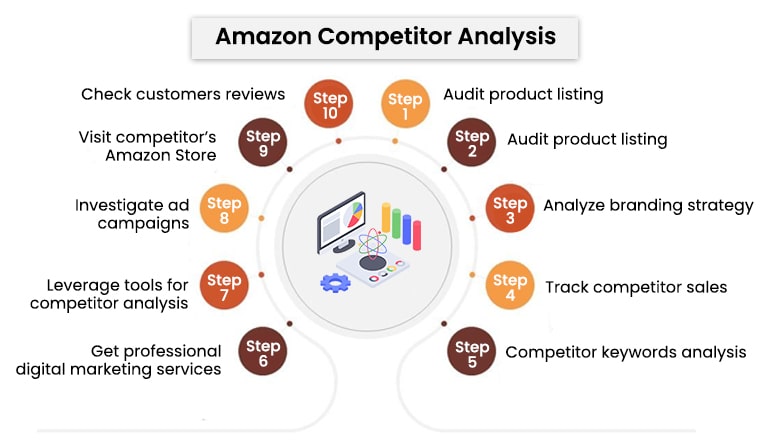
Conduct a thorough analysis of your niche and competitors within the Amazon marketplace.
Evaluate your business’s market share, growth potential, and how it compares to similar businesses in terms of pricing, product range, and customer perception.
Intellectual Property and Branding:
If your Amazon business has developed a recognizable brand and holds any intellectual property (trademarks, patents, etc.), these assets can significantly increase its value.
Inventory Management:
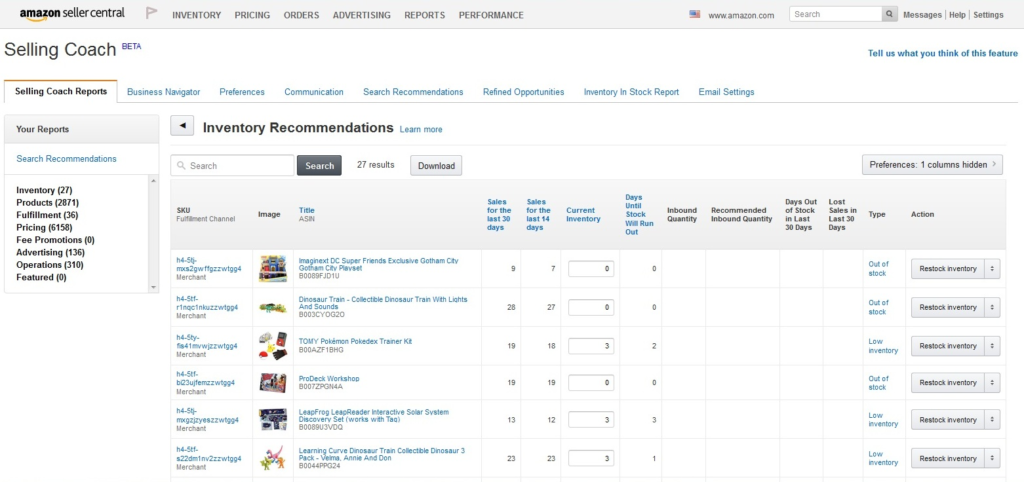
Efficient inventory management is critical.
Excess inventory can tie up capital, while low inventory levels can lead to missed sales opportunities.
A potential buyer will want to understand your inventory turnover rate and any risks associated with unsold inventory.
Amazon Account Health:
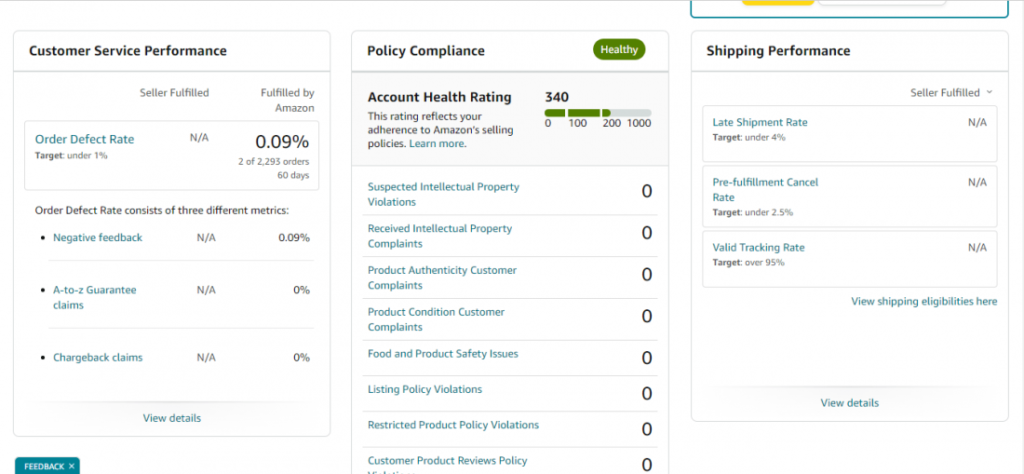
Monitor the health of your Amazon seller account, including performance metrics, customer service metrics, and any past policy violations.
A strong track record with Amazon can add value to your business, whereas a negative one may be a liability the buyer is not willing to take on.
Business Growth Potential:

Highlight opportunities for future growth. If you’ve been successfully expanding to other marketplaces, introducing new products, or have strategic plans in place, these growth prospects can be attractive to potential buyers.
Legal and Regulatory Compliance:

Ensure your business is compliant with all relevant laws and regulations.
A buyer will want assurance that there are no legal issues that could pose a risk to the business’s continuity.
Engage Professionals:

Valuing a business can be complex, so consider seeking help from business brokers, accountants, or valuation experts who have experience in the e-commerce industry. They can provide a more accurate and unbiased valuation.
Multiple Valuation Methods:

Utilize a combination of valuation methods, such as the Income Approach (DCF – Discounted Cash Flow), Market Approach (comparing to similar businesses’ recent sales), and Asset-Based Approach (evaluating tangible and intangible assets).
Document Everything:
Keep detailed records of all aspects of your business. Transparent documentation can instill confidence in potential buyers and make the valuation process smoother.
Remember that the value of an Amazon business can fluctuate over time due to market conditions and changes in the business itself. Regularly reassessing its worth can help you make informed decisions and adapt your strategies accordingly.
How to Increase Your Amazon Business Value
Now that you know the basics on how to value your Amazon business, the obvious question is this:
What do you do if its value is too low for all the work you’ve done building it to be worthwhile?
That’s a tough situation to be in.
Luckily, there are many things you can do to increase the value of your Amazon business, allowing you to later sell it for a much larger amount. If you want to escape the Amazon business, it’s worth putting the time in to do it properly and ensure you don’t lose out.
Here are some things to consider:
1. Stick to a Single Category
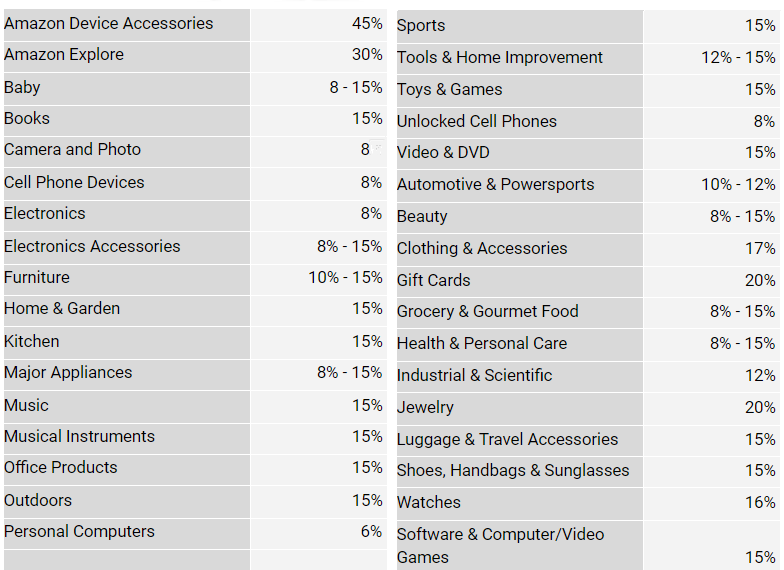
Focusing on one category in your Amazon business can significantly enhance its value by allowing you to establish a strong niche presence and expertise.
By narrowing your product range and honing in on a specific category, you can become a go-to seller for customers seeking those particular products. This targeted approach enables you to optimize your product listings, develop tailored marketing strategies, and build a loyal customer base.
Investing time and resources into researching and understanding the trends, preferences, and pain points of your chosen category will position your business for innovation and continuous improvement.
Furthermore, by excelling in one category, you may attract potential buyers or investors seeking to enter or expand within that specific market, increasing the overall value of your Amazon business.
2. View Amazon as Just One Sales Channel Among Many

Viewing Amazon as one sales channel rather than the sole source of revenue for your business can have a positive impact on its overall value.
By diversifying your sales channels, such as setting up your own e-commerce website, selling on other online marketplaces, or even exploring offline retail opportunities, you reduce the risk of relying too heavily on Amazon’s platform alone.
This approach not only broadens your customer reach but also allows you to control your brand’s messaging, pricing, and customer experience to a greater extent.
A diversified sales strategy can also improve your negotiating power with potential investors or buyers, as they see the business as less vulnerable to disruptions caused by changes in Amazon’s policies or algorithms.
Demonstrating a well-rounded approach to sales channels enhances the perceived stability and potential growth of your Amazon business, ultimately driving its overall value higher.
3. Build a Following Outside of Amazon

Building a community of followers outside of Amazon can significantly enhance the value of your Amazon business by fostering customer loyalty, brand advocacy, and long-term sustainability.
Establishing a strong online presence through social media platforms, email marketing, and a dedicated website allows you to engage directly with your customers beyond Amazon’s ecosystem.
By nurturing a community of satisfied buyers and enthusiasts, you create a powerful network of brand ambassadors who can spread positive word-of-mouth and attract new customers to your products.
This sense of community also provides valuable feedback and insights into customer preferences, allowing you to refine your offerings and stay ahead of market trends.
Potential buyers or investors will view a thriving external community as a testament to the business’s potential for continued growth and customer retention, thus elevating its overall value in the marketplace.
4. Use Automation Tools and Outsourcing

Automating and outsourcing operations within your Amazon business can significantly enhance its value by streamlining efficiency, reducing costs, and increasing scalability.
Automation can be applied to various tasks, such as order processing, inventory management, and customer support, enabling you to handle larger volumes without proportional increases in labor expenses.
By outsourcing certain functions, such as product sourcing, ranking or fulfillment, or even full account management to reliable partners or fulfillment centers, you can focus more on strategic decision-making and business growth.
These measures improve overall operational effectiveness and provide a level of consistency and reliability that potential buyers or investors find appealing.
Additionally, with a well-automated and outsourced business model, you can demonstrate a higher level of profitability and show that the business is less dependent on individual key personnel, which can positively influence its valuation and attractiveness in the marketplace.
5. Get Exclusivity Agreements

Opting for exclusivity agreements with suppliers can significantly improve the value of your Amazon business by creating a competitive advantage and enhancing the perceived uniqueness of your products.
When you secure exclusive rights to sell certain products or brands on Amazon, you effectively reduce direct competition, allowing you to command higher prices and enjoy improved profit margins.
This exclusivity can also strengthen your brand identity, as customers will associate your business with a distinct set of offerings not readily available elsewhere.
Moreover, having exclusive supplier agreements demonstrates a level of trust and reliability to potential buyers or investors, as it signifies a stable and protected supply chain.
This strategic move can make your Amazon business a more attractive investment, ultimately leading to a higher valuation in the eyes of potential buyers or partners seeking a differentiated and defensible market position.
6. Know When to Give Up on Failed Products
Improving your Amazon business’s value involves knowing when to drop items from your product inventory strategically.
Regularly analyzing sales performance and product metrics can help identify underperforming items that may be dragging down overall profitability. By discontinuing such products, you free up valuable resources, including storage space and working capital, to focus on more profitable offerings.
This proactive approach to inventory management not only streamlines operations but also positions your business as agile and adaptable to market changes. Potential buyers or investors will see this as a strong indicator of your business acumen and the ability to make data-driven decisions.
Knowing when to drop items helps maintain a lean and high-performing product portfolio, ultimately leading to a more valuable Amazon business with a greater potential for growth and sustained success.
7. Optimize Your Amazon Storefront

Optimizing your Amazon storefront can significantly improve the value of your business by enhancing brand perception, increasing customer trust, and boosting sales.
A well-designed storefront with eye-catching graphics, compelling product images, and informative product descriptions creates a professional and inviting shopping experience.
Implementing SEO (Search Engine Optimization) techniques and using relevant keywords in your product titles, bullet points, and descriptions can improve visibility in Amazon’s search results, leading to increased organic traffic.
Additionally, offering attractive promotions, deals, and bundles can entice customers and encourage repeat purchases.
By providing excellent customer service and promptly addressing feedback and reviews, you build a positive reputation, fostering customer loyalty and brand advocacy.
A well-optimized storefront showcases the strengths of your Amazon business, making it more attractive to potential buyers or investors who see the potential for continued growth and profitability.
8. Boost Your Products’ Rankings
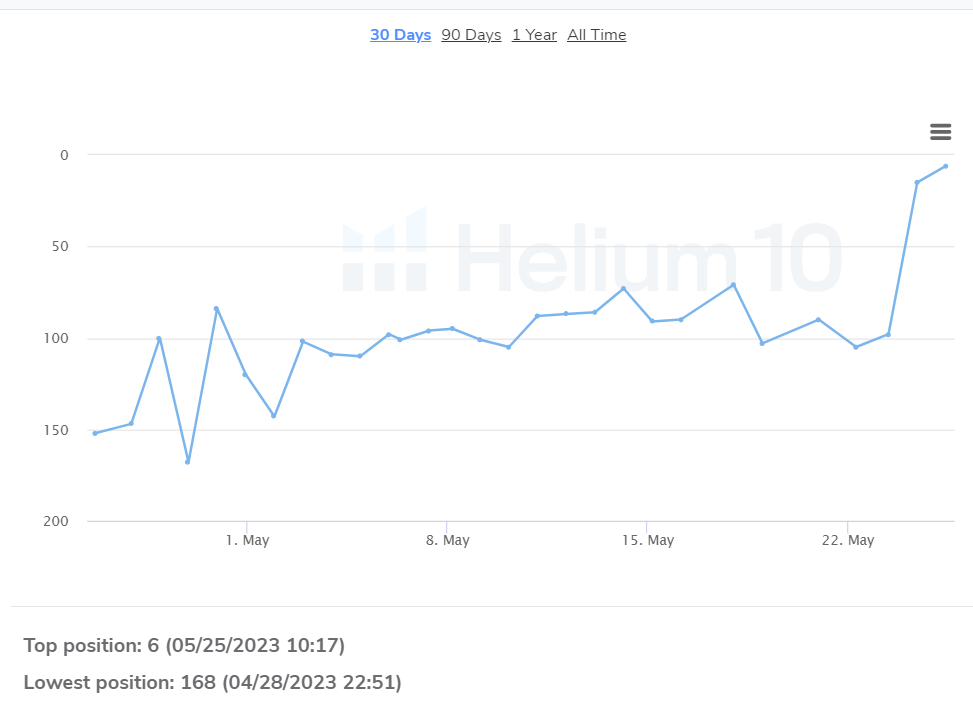
Reliable and effective organic ranking procedures such as KWFS allow you to rapidly and easily boost the rank and visibility of your Amazon products, often providing a higher than 10X ROI.
While a large KWFS campaign on one of the primary keywords will obviously provide the biggest ROI and boost to sales, it is not the only way to boost the value of your Amazon business.
Even a smaller campaign, on a highly targeted keyword can for example boost sales from 5 to 10 a day, for a significantly lower initial investment than the larger campaigns mentioned above.
While this doesn’t sound like a massive difference, if net profit per sale is $5, this constitutes an extra $25 a day in profit, or $750 a month, which translates into increasing the value of your Amazon business by $25k!
Quite a significant benefit from a single keyword for a single product – as you can imagine, if you have multiple products the opportunity can be significantly larger.
How to Sell Your Amazon Business
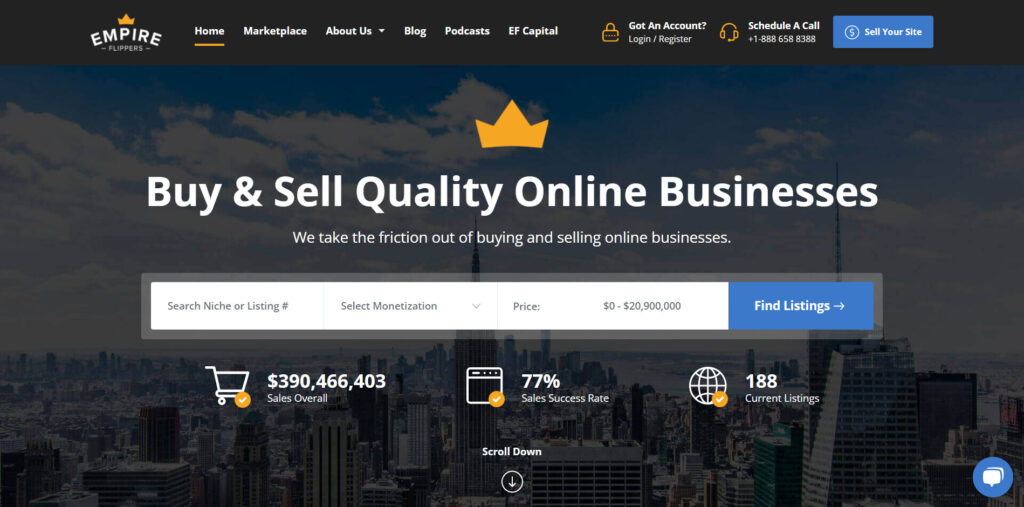
Selling your Amazon business can be a complex process, but with careful planning and the right resources, it can be a rewarding endeavor.
Here are some steps to guide you through the start of process:
Business Preparation: Before listing your Amazon business for sale, it’s essential to prepare and organize all relevant documentation, including financial records, sales history, inventory management, and any intellectual property.
This will instill confidence in potential buyers and make the due diligence process smoother.
Valuation and Pricing: Determine the value of your Amazon business by assessing its financial performance, growth potential, customer base, and other key factors.
Seeking professional help from experts or using reputable valuation tools can ensure you set a competitive and realistic asking price.
Market Your Business: Create a comprehensive listing that highlights the strengths of your Amazon business.
Showcase its performance metrics, growth opportunities, and any unique selling points that set it apart from competitors.
Utilize various marketing channels to reach potential buyers, including industry-specific forums, social media, and relevant online marketplaces.
Negotiation and Due Diligence: Engage with potential buyers who express interest in your Amazon business. Be open to negotiations and provide detailed information during the due diligence process.
Address any concerns or questions the buyers may have and work towards a mutually beneficial agreement.
Once you’ve completed the above steps and are looking to list your business for sale, the next obvious question is how to sell your Amazon business.
These are the most common and most reliable routes to finding a buyer:
How to Find a Buyer for Your Amazon Account
Private Sale:
Benefit: Selling privately can save you listing fees and potentially allow for more personalized negotiations with the buyer. You have more control over the process and can maintain confidentiality.
Drawback: Finding qualified buyers can be challenging, and the process often takes a lot longer than using a specialized marketplace. There’s also a higher risk of encountering non-serious or unqualified buyers.
Brokerage Services:
Benefit: Hiring a business broker can help you navigate the complexities of the selling process, as they have experience in valuing businesses, marketing them, and finding potential buyers. They can also bring in a broader network of interested parties.
Drawback: Brokers usually charge a significant commission, which can eat into your final sale proceeds
Additionally, not all brokers may have experience or expertise specifically in selling Amazon businesses.
Auction Platforms & Popular Online Marketplaces:
Auction Benefit: Auctions can create a competitive environment that might lead to higher sale prices for your Amazon business. They also have established buyer networks.
Auction Drawback: The final sale price can be unpredictable and may not always reflect the true value of your business. Additionally, auction platforms might require upfront fees or a percentage of the final sale.
As for online marketplaces that allow you to buy and sell Amazon accounts, they can indeed be a great option for selling your Amazon business quickly, easily, and for a high value. These specialized marketplaces connect sellers with a pool of pre-vetted and serious buyers who are specifically interested in acquiring online businesses, including Amazon ventures.
Empire Flippers, as one of the prominent platforms in this space, handles the listing, marketing, and vetting processes, saving sellers time and effort.
Moreover, the competitive environment on these platforms often leads to higher valuations for businesses that meet the buyers’ criteria.
The marketplace’s experience and expertise in handling the sales process can also streamline negotiations and ensure a smoother transaction overall, benefiting both sellers and buyers.
Online Forums and Communities:
Benefit: Online forums and communities dedicated to buying and selling Amazon businesses can be a free or low-cost way to connect with potential buyers directly.
Drawback: The process might be less formal, and there is a higher risk of encountering non-serious or unreliable buyers.
Additionally, it may take more effort and time to vet and negotiate with individual buyers.
Leveraging a Network:
Benefit: Utilizing your personal and professional network to find potential buyers can lead to faster and more trustworthy connections.
Drawback: Relying solely on your network might limit the number of interested buyers and could potentially hinder your ability to find the best deal for your Amazon business.
Regardless of the method you choose, it’s crucial to do thorough due diligence on potential buyers and seek professional advice when navigating the sale process.
Each approach has its unique advantages and challenges, so selecting the one that aligns with your specific goals and preferences will contribute to a successful and satisfying sale of your Amazon business.
Audit
Auditing your Amazon business before selling is a crucial step to ensure transparency, identify potential issues, and maximize its value in the marketplace.
A comprehensive audit involves meticulously reviewing financial records, inventory management, customer feedback, and operational processes. This audit serves multiple purposes:
Firstly, it helps to provide accurate and verified information to potential buyers, building trust and credibility during the negotiation process.
Secondly, it allows you to address any weaknesses or inefficiencies within your business, increasing its appeal to prospective buyers.
By resolving these issues beforehand, you can position your Amazon business as a well-organized, high-performing entity with excellent growth potential, thus attracting a wider pool of qualified buyers.
Ultimately, conducting a thorough audit demonstrates your commitment to integrity and business excellence, making the entire selling process smoother and increasing the likelihood of achieving a successful and rewarding sale.
Due Diligence
Conducting due diligence before selling an Amazon business is a crucial step to ensure a smooth and successful transaction. Due diligence involves a comprehensive investigation of the business’s financial, operational, legal, and customer-related aspects.
By thoroughly examining the financial records, sales performance, inventory management, and customer reviews, you can verify the accuracy of the information presented to potential buyers. This process helps identify any potential risks or liabilities that could impact the deal’s outcome and allows you to address these issues proactively.
Moreover, conducting due diligence enables you to present a clear and transparent picture of your Amazon business, instilling confidence in potential buyers and increasing their trust in the business’s overall health and potential for growth.
By taking the time to conduct due diligence, both you, as the seller, and the potential buyer can make informed decisions and negotiate a fair deal, leading to a more successful and satisfying sale of your Amazon business.
Contracts
Carrying out the legal documents and contracts part of the process before selling an Amazon business is essential to ensure a smooth and secure transaction.
This step involves reviewing and updating all legal agreements and contracts associated with the business, including vendor agreements, supplier contracts, licensing agreements, trademarks, and any other legal documentation relevant to the operation.
The primary objective is to ensure that all agreements are valid, up-to-date, and transferable to the potential buyer. By addressing any legal discrepancies or potential issues beforehand, you minimize the risk of disputes arising during the sale process, which could delay or jeopardize the deal.
Also, having clear and well-drafted legal documents helps instill confidence in potential buyers, showing them that your Amazon business is compliant and legally protected.
Taking the time to handle the legal aspects before selling can streamline the process and lead to a smoother transition of ownership, ultimately facilitating a successful and legally sound sale of your Amazon business.
Funds Transfer

Carrying out the funds transfer part of the process is crucial to ensure a secure and timely exchange of payment.
This step involves setting up a clear and agreed-upon payment structure, including the purchase price, payment terms, and any escrow arrangements to protect both parties.
By finalizing these details beforehand, you establish transparency and avoid misunderstandings during the later stages of the sale. It’s essential to select a reliable and secure payment method that satisfies both the seller and the buyer.
Timely funds transfer is critical to demonstrate your commitment to the transaction and maintain a positive relationship with the buyer.
By prioritizing the funds transfer process, you enhance trust and confidence in the sale, reducing the risk of payment delays or complications that could jeopardize the deal.
Ultimately, ensuring a seamless funds transfer contributes to a successful and satisfactory sale of your Amazon business, benefiting both parties involved.
Ready to take the next steps in selling your Amazon business and maximizing its value?
Whether you need help boosting your rankings, sales, or preparing for a successful account sale, we’re here to assist you every step of the way.
Contact us today to discuss your specific needs and goals.
If you’re considering selling your Amazon business, don’t forget to explore marketplaces like Empire Flippers, where you can reach a pool of serious buyers and achieve a high-value sale quickly and easily.
To see the impressive results we’ve achieved for hundreds of Amazon sellers, head over to our case studies page.
Let’s collaborate to unlock the full potential of your Amazon business and achieve your desired success!
